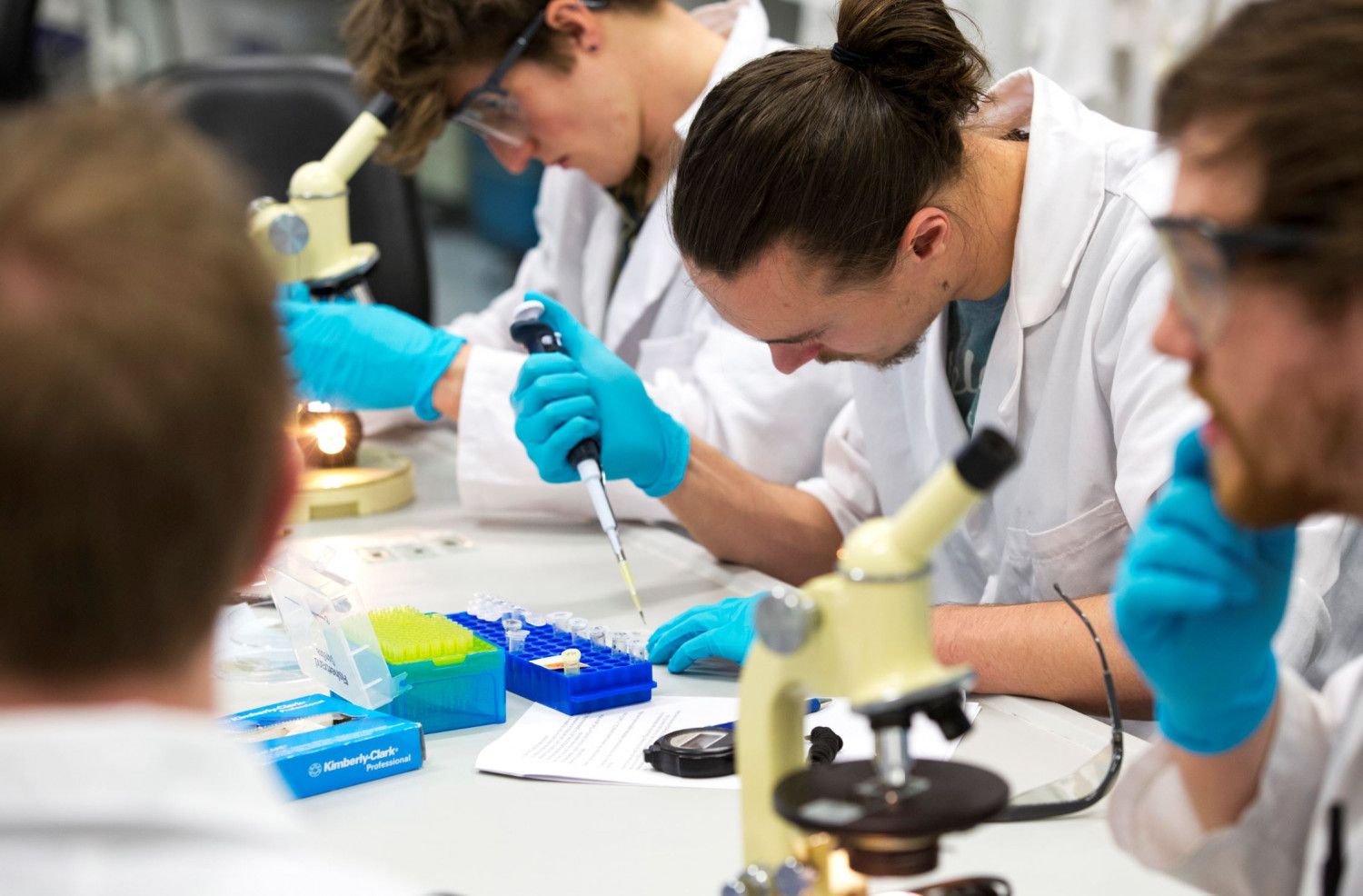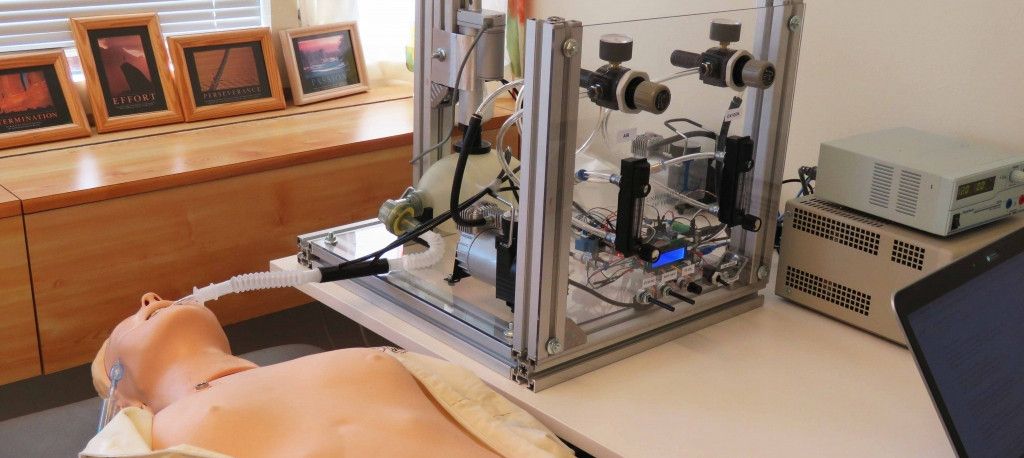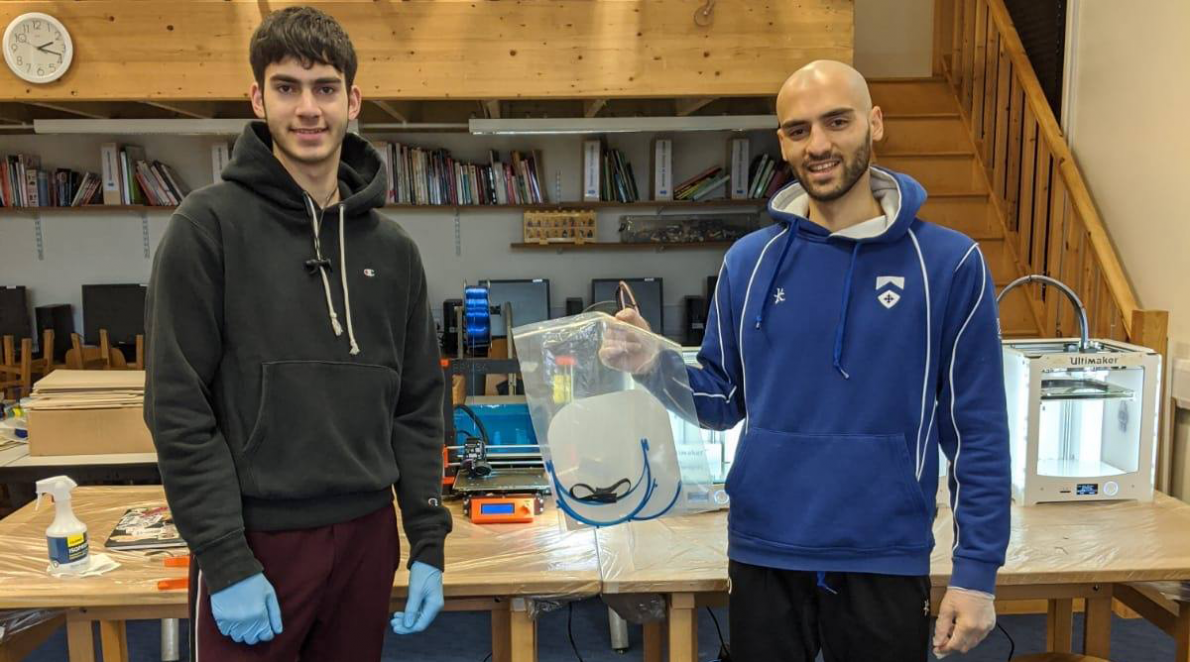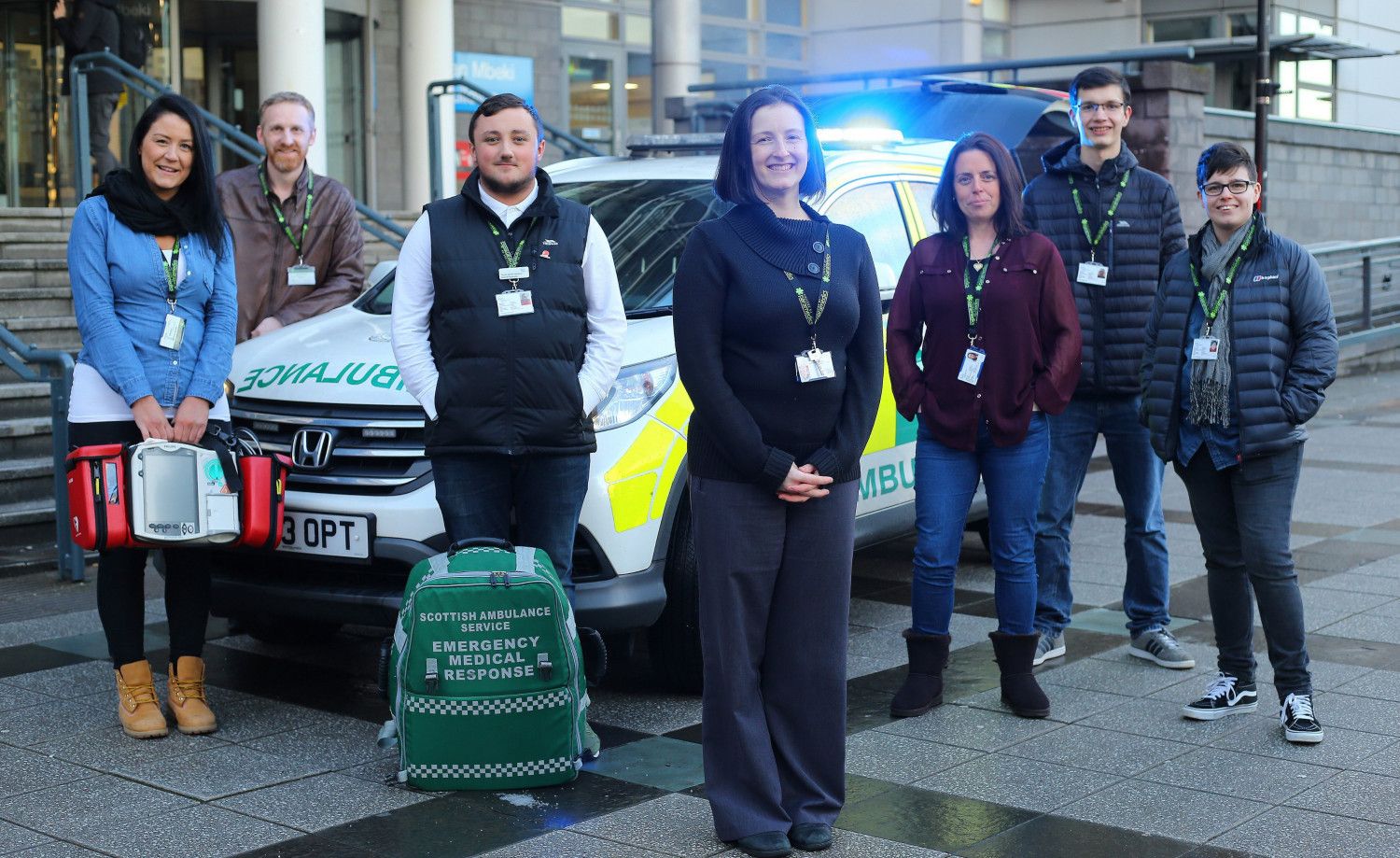As coronavirus continues to cause chaos around the world, people everywhere are finding new and innovative ways to combat this virus and help try to save lives. With the planet finding itself in the grip of a pandemic not seen on this scale for many, many years, people are showing incredible human spirit, in some cases putting their own health and wellbeing on the line in a bid to help others in need.
In Scotland, our 19 universities, which welcome more than 50,000 international students from around the world every year, are also doing their bit to help during these unprecedented times. Right across the country, these institutions and their incredible staff and students are applying their skillsets to the problem of coronavirus and contributing to make Scotland a safe environment that continues to be open and welcoming.

In doing so, they have developed a whole host of different initiatives designed to help different aspects of the pandemic. From the vital frontline medical services that are saving countless lives, to initiatives created to help deal with loneliness, isolation and issues of mental health, Scotland is flexing its creative and caring side in completely new ways.
To celebrate some of these amazing projects, we want to take you on a whirlwind tour of a few of our favourites. Though these are the tip of the innovation iceberg, they provide an excellent account of how Scotland’s universities are doing their bit during this crisis.
Inspiring creativity
Glasgow School of Art and the Royal Conservatoire of Scotland – two of Scotland’s world-renowned creative arts institutions – are developing amazing new ways to utilise the arts to help people during the coronavirus crisis. In an anxious and uncertain time, these initiatives can help provide joy, combat isolation and offer a sense of escapism for those who need it.

Creativity Matters is a brand new online platform developed by Glasgow School of Art that allows creatives to come together during this difficult time. Through Creativity Matters, people can share thoughts, tips and ask questions around areas such as how to utilise creative design-led thinking as well as consider the role of creativity and innovation in challenging times. This platform provides incredible insight into how the creative community can help respond to coronavirus and crisis situations more generally.
At the Royal Conservatoire of Scotland, who are used to performing to tens of thousands across their five professional performance venues, they are thinking of new ways to bring their incredible work to the community. They’ve created RCS at Home – an online performance space that offers the chance for the community to come together, share, discuss, learn, create and laugh.
Pioneering technology
Scotland's long history of pioneering technology is unmatched around the world. From the television and the telephone, to the steam engine, the MRI scanner and many more. Today this trend is continuing, with the coronavirus pandemic bringing out the very best in the current generation of Scottish pioneers.

At the University of Strathclyde, they are helping to develop an incredible technology that will allow patients with eye problems to seek emergency care through a virtual consultation. Collaborating with two of Scotland’s local NHS bodies (Forth Valley & Grampian), researchers at the university have developed a live video system that will allow affected patients to access a network of optometrists. This will not only ensure that anyone with a serious eye problem is immediately diagnosed and treated but will also free up vital NHS resources to tackle coronavirus.
While at the University of Aberdeen, scientists who normally don’t even study our planet are turning their expertise to the pandemic. A group of space scientists have developed an incredible new ventilator to help support a global need for this vital medical equipment. Known as the ATMO-Vent (Atmospheric Mixture Optimisation Ventilator), this ventilator can be quickly manufactured and is considered by many to be both more cost-effective and more user friendly than models currently in use.
Dr Dave Muirhead – the university’s Head of Geo-sciences said
“Their skill in building high-quality instruments for use in planetary research is already world-renowned, and it is to their credit that they have used these skills to offer assistance in the COVID-19 effort”.
Heart-warming community collaboration
A strong sense of community is one of Scotland’s defining features. And, in challenging times, it has been heart-warming to see the way that our people and our businesses, from far and wide, have come together to help during coronavirus.

Augment Bionics are a University of Edinburgh start-up who print prosthetic limbs. Designed to give NHS patients in need of prosthetics more options, giving back to the community has always been at the heart of their technology. So, when a shortage of PPE (Personal Protective Equipment) became an issue for NHS frontline staff, they didn’t hesitate. Augment Bionics turned over their entire business, converting their high-end 3D printers to create much needed face masks and visors for medical staff treating coronavirus patients.
Across the city, Heriot-Watt University students and staff in the biomedical engineering department are also working together to produce important supplies for NHS staff on the frontlines of the coronavirus pandemic. Utilising both 3D printers and cutting-edge industrial laser machines, these students are creating protective face shields for healthcare teams in hospitals, local care homes and GP surgeries.
Dr Michael Crichton, the project lead on the Heriot-Watt initiative, said:
“Our university has a unique mix of skills and equipment with experts in medical technology, engineering design and manufacture. We all want to play our part and use our expertise more effectively and rapidly deliver what the NHS needs”.
But it’s not just in the capital that these collaborative initiatives are flourishing. At the University of Stirling, for example, they’re literally giving away the equipment necessary to develop more PPE and save lives. The university has gifted two 3D printers, and loaned out another two, to a local high school that is creating vital equipment for the local area. The high school has already developed thousands of new pieces, having an incredible impact along the way.
Students on the frontlines
In countries around the world, health services are being continually stretched by the coronavirus outbreak, and Scotland is no different. However, at a time when more people than ever are needed on the front lines of our emergency services, the next generation of nurses and medics in Scotland are stepping up and filling vital roles.

In the north east of the country, hundreds of students have been brought in to help with the outbreak. Universities from throughout the region, including Robert Gordon University and the University of Aberdeen have provided more than 450 student nurses and midwives to the service. As well as continuing to attend lectures and seminars online, the trainees are gaining incredible experience to help in their future careers – and are getting paid for their work to.
In Glasgow, students from Glasgow Caledonian University (GCU) are also doing their bit for the cause. Nearly 100 paramedic students have temporarily joined the Scottish Ambulance Service helping out as part of NHS Scotland’s emergency response team. At the same time, more than 500 student nurses from GCU are also joining the cause. These students are being spread out across the country, to help offer services where they are needed most.
But it doesn’t stop there. In Scotland’s capital, healthcare students from Queen Margaret University are also answering the call for extra support. Students from a range of specialisms including Nursing, Physiotherapy, Occupational Therapy, Therapeutic Radiography, Diagnostic Radiography, Speech & Language Therapy, Dietetics and Podiatry students are now working in NHS and social care settings to help ease pressure on the system.
We know the fight against coronavirus has been a long and difficult one for so many people in countries around the world. However, initiatives like these show the power of good that can be done when people come together to collaborate, help and learn. As this fight goes on, we offer our heart-felt thanks to these people and the many, many more who continue to work towards ending this outbreak.
Find out about more amazing initiatives at universities-scotland.ac.uk